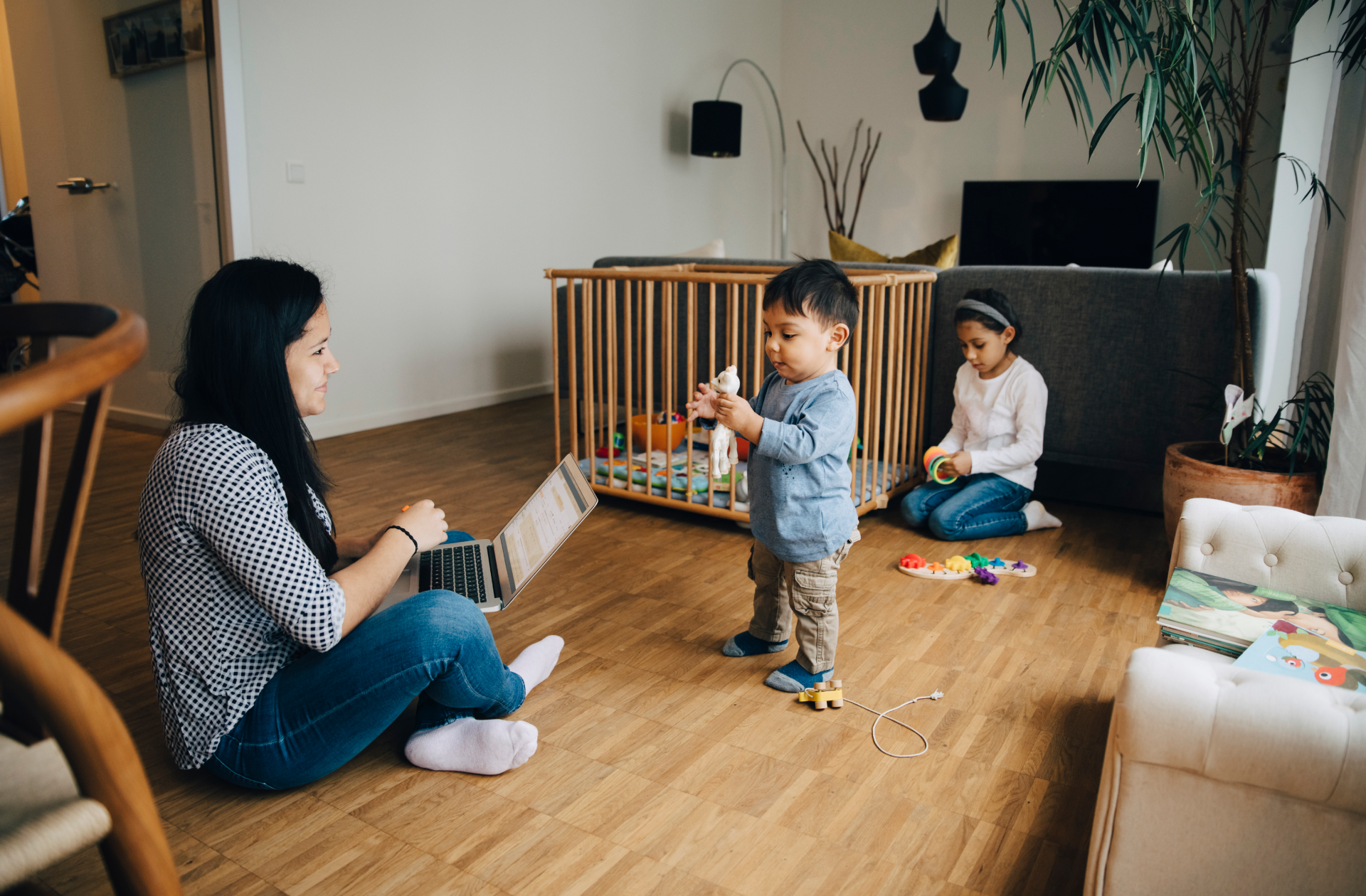I was living in a one-bedroom apartment in Brooklyn with my husband and newborn daughter when my work became fully remote. I thought, like many others in my position, "Time to get out of Dodge!" Why stay put when Airbnb and Vrbo make finding a home-away-from-home seem so easy? It only took a couple of weeks to realize the fantasy of nomadic life is very different from the reality of traveling with kids while continuing to work full-time.
After staying in dozens of places and making tons of mistakes, I've learned important lessons for picking accommodations. So, to save you time and a few gray hairs, I put together a simple list of my top six tips to help you thrive while working and traveling with family.
Before you go:
It's best to share your upcoming time zone with colleagues, so people know when you'll be available and when you won't be able to respond immediately. Also, be prepared to work on your home office's time zone. It can be rough, but it isn't necessarily a bad thing! For example, working New York hours in Los Angeles means early mornings, but you have the whole afternoon free for personal and family time.
Tip 1: Select "Entire place"
You don't want a host or their dog interrupting your work. Most vacation rental sites offer an option to book an entire place, be it a house or an apartment. Hosts may say you get your own "private" space inside their home, but the only way to guarantee you won't have them flushing a toilet in the room next to you (separated by a paper-thin wall) is to get an entire place.
Tip 2: Research for reliable Wi-Fi, have a plan B
Wi-Fi may seem an obvious requirement, but a "has Wi-Fi" icon in the description doesn't mean it works. Look through the reviews to see if the Wi-Fi is reliable, especially in countries that have notoriously poor internet connections. It's especially helpful if you can find reviews from people who worked while staying there. For example, I once had to pay by the MB for extremely slow internet while traveling in South Africa. It's embarrassing how much my glitchy Zoom meetings cost. Luckily it was a short trip.
Even the best-laid plans can fall apart—have a plan B. Find a place near some coffee shops or, better yet, a library if your WiFi stops working. Also, check with your cell phone provider to see about using a hotspot. Since it costs extra, I like to take video conferences on my phone app and only use the hotspot for emails from my tablet or laptop.
Tip 3: Multiple rooms, with doors
Just like closing the door of your home office, it's nice to be able to separate yourself from screaming children or an also-working partner wherever you are staying. Really study the rental's photos to get a sense of the layout. Modern open floor plans may look great, but they can be an echo chamber and are best left for people without kids.
It's not just kids you need to close the door on, though. Sometimes it's loud TVs or even appliances. I learned the hard way at an Airbnb in LA, where my desk was next to the extremely loud dryer and dishwasher that seemed to always be running.
Tip 4: Make any place work for you
When you plan to stay somewhere for a prolonged period of time, don't feel like you have to keep everything as it is. If you don't like the way a rental is laid out, change it. Before you move things around to fit your needs, though, take detailed photos of the area you want to rearrange so you can put it back before you leave.
Even if you can get everything set up how you like it, you may still have some hiccups. It's surprising how often rooms only have one poorly located outlet. Don't stress. Bring accessories. I never leave home without a power strip, a couple of extension cords, and my noise-canceling headphones.
Tip 5: Stay for a while
Staying somewhere a few days is sometimes fun or necessary, but often exhausting and expensive. When you are there for longer, you can settle in and make it feel like home. Also, it's far more cost-effective to stay for over a month on most rental sites. Remember, you can work from anywhere. So ignore that little voice in your head saying you’re supposed to go home. Do you really need to go home?
Another reason to stay longer is that the first couple days of living and working in a new place are always challenging for children. I’ve found it takes my daughter at least four days to settle into a new location. I’ve found people complain about traveling with children because they don't give them enough time to adjust.
Tip 6: Get out and about
Why are you traveling? So you can enjoy the world! Even if you’re working full time, pick an area with plenty of good places to work and recreate outside of the house. If you do, you'll feel like you’re on a constant vacation.
It's important to remind ourselves that the old office mindsets aren't set in stone. Working remotely means you can work ANYWHERE. So if you have a hotspot on your phone, work at the beach, or in the old town square of a quaint Italian village.
Bonus tip: Just go for it!
Instead of worrying about all the little details, the question you should be asking is, "Why not?" I put together this list to help people avoid a few of the mistakes I made along the way. But, I never had a guidebook and have had incredible experiences along the way. I heard some great advice recently that went something like this: Never change your plans based on weather. Most likely, it will be better than you expected, and if not, you'll have a great story afterward.




